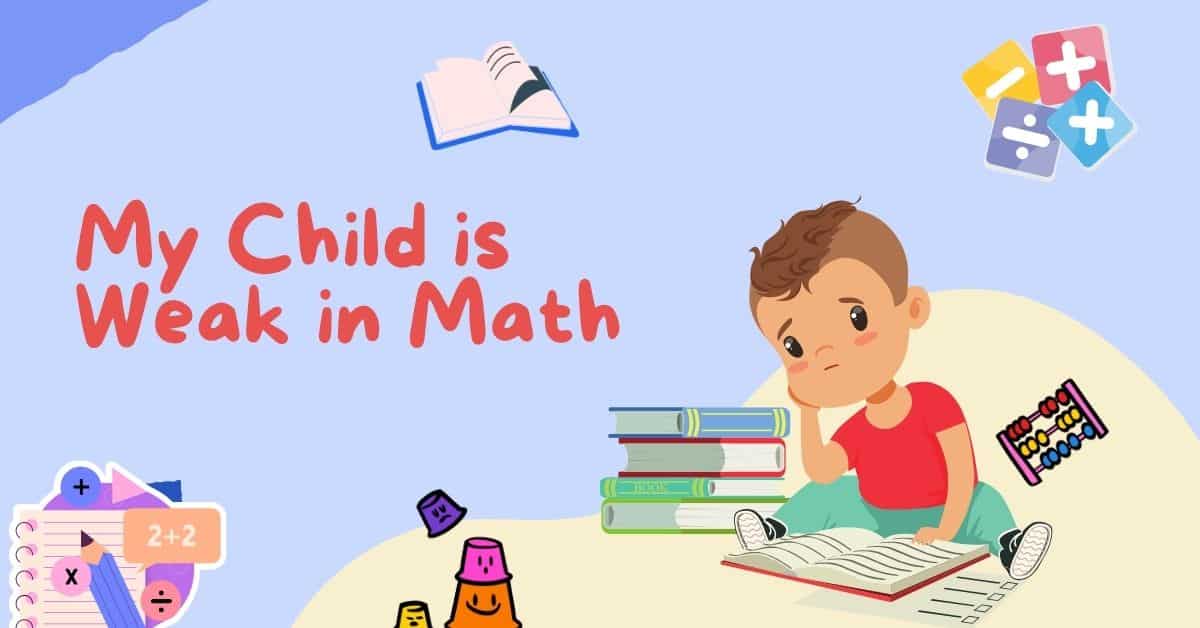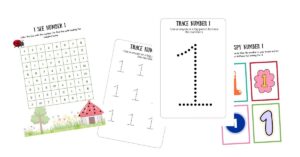My child is weak in math; how can I help him?
If this is your question, let me pacify your worries first. Kenya has a math problem. Maybe the whole world does.
A recent survey by the National Assessment of Educational Progress (NAEP), shows that only 36% of 4th graders are proficient in math and the rest are seriously struggling. This gets worse, as by 8th grade, only 26% are doing fairly well. While this is an America statistic, it’s likely this is probably happening in Kenya as well.
Why? Many reasons to be honest, but the primary one is that schools teach kids to memorize formulas instead of understanding and applying mathematical concepts.
But this is not an excuse for your child to fail in math. As we know, passing mathematics is a major requirement if a child wants to pursue traditionally high-paying careers like Engineering, Law, Architecture, Actuarial Science, Medicine and all ICT-related fields.
So what can you do to help a child that’s really struggling with math?
The first step is to identify the real problem, or rather the cause of their math weakness. You’ll be surprised to find your child is not lazy or bad at math per se, but there is a simple underlying issue that you can work to solve together.
So let’s start there, shall we?
Why Are Some Students Weak in Math?
1. Lack of Building Blocks
Math is a cumulative subject that builds upon itself grade after grade. We start by learning numbers, simple addition, and place values before transitioning to multiplication, division, fraction, and the rest.
If a child did not fully grasp foundational mathematics, it’s highly unlikely they will understand more complicated concepts. This is a problem kids who go to both public and private school. schools face because of high teacher-student ratio. Students are moving to the next grade before mastering their current grade and the gap keep widening the higher they go.
2. Math Anxiety
Here’s a shocker: 17% of kids suffer severe math anxiety, especially during exams. But no one is born with math anxiety. It stems from somewhere, like every limiting belief we have in our lives.
Here’s where I tell you my complicated history with math and how one teacher changed everything for me.
I was okay in math up until grade 5 or 6. I’ve always been a language person, so naturally, I loved and did better at all theoretical subjects than math. On the other hand, my sister was exceptionally good at math and all other subjects to be honest.
My mother would always compare me with her and repeatedly mention how I was bad at math. It was not that the subject was difficult, and I could work more at it if I wanted, but my interests were elsewhere. It was not like I was failing, right?
Well, these repeated statements slowly got into my head, and I started believing I was poor in math, which eventually translated into poor grades. As fate would have it, teachers in my school would separate those who did well in class and us who sucked at the subject. Needless to say we got more scolding and bad reports instead of real help, and our grades continued to go down, as did our limiting beliefs.
However, since I wanted to study engineering, my mom enrolled me to a private tuition class. The difference this time was that I was the only student and I could ask the teacher to slow down and repeat concepts as many times as I needed them to. The tutor was patient, which also helped a lot.
More importantly, she kept telling me I was not bad at math, I just needed more practice. So, we did practice every day and found ways to enjoy the subject. Guess what? I finished high school at the top of my class in a subject I thought I was bad at, and I still love math to this day.
Here’s the moral of that story.
The words kids hear from their parents and teachers shape their beliefs. Again, a lack of building blocks in foundational classes may cause a child to struggle a bit in math around grade 3 or 4. But if they keep hearing they are poor in math, they believe that and allow it to become a reality.
But you know what is worse about the words parents, teachers and peers speak in front of kids? They can turn into fear.
How many of us grew up hearing how hard math is and believing it? This fear and limiting belief is what causes math anxiety during tests. If a child believes math is hard and they will fail, why would they not be anxious when doing an exam?
More importantly, if they keep getting scolded by their teacher and getting segregated from other students, shouldn’t this cause anxiety?
Don’t get me wrong. Teachers mean well, and sometimes such kinds of wake-up calls work. But in most cases, it only causes distress and anxiety in the student. Let’s learn to encourage instead of put down and dim the learners. Watch what Dr Katie Null has to say about overcoming math anxiety.
3. Lack of Interest
You know what, math is not all that interesting to a lot of people. I know this first hand because I still struggle to maintain interest in similar subjects like Physics and Chemistry. It is especially boring when you are just being forced to memorize a bunch of formulas without really understanding why things are the way they are. Without any interest in the subject and a teacher who does nothing to make it fun, failing is inevitable.
This lack of interest can cause a student to avoid revising and practicing math as much as other subjects.
The solution, make it fun. Besides using our math resources, you can use creative ways to make the learners have fun. Remember, kids learn when they play, and math is no different. For instance, a math worksheet where kids help a butterfly find a flower is more fun than a page full of math problems.
4. Dyscalculia and Other Learning Disabilities
The last reason your child could be struggling with math is learning disability. There are several learning disabilities that could affect math performance, but the primary one is dyscalculia.
What is dyscalculia?
It is a learning disability that affects a child’s ability to learn and perform math or other number-based operations. It is not as common as dyslexia, but it affects up to 7% of elementary school kids.
Kids with dyscalculia will struggle to
- Recognize random numbers and count
- Connect numerical symbols such as 4 with their corresponding word four
- Recognize patterns and order
- Understand basic math like addition, multiplication and division
- Understand real-life math like reading the clock, telling right from left, bigger or smaller etc
But like I said, dyscalculia is not the only learning disability that can affect math progress. If your child has dyslexia, ADHD, or audio-sensory issues, they could have a hard time with math as well. What’s worse, a child can have more than one of these neuro-divergent conditions, making the struggle worse.
So let’s go through this once again in summary,
Why Is My Child So Bad at Math?
- Math anxiety stemming from fear of failing, being admonished by parents or teachers or simply an aversion to math because of its reputation.
- Poor foundation in math during pre-school and lower classes, or what we referred to as a lack of building blocks in the subject.
- Lack of interest in a subject that’s deemed boring or hard.
- Dyscalculia and other learning disabilities, or social-emotional conditions like ADHD and autism.
- Lack of regular practice.
Identifying which of these issues your child is going through is the starting point towards a lasting solution. I would start by having a conversation with the child about how they feel.
Ask questions like,
- How do you like your math teacher? Do you like the way he teaches and explains?
- How do you feel about math? Do you think it’s hard?
- What topics are you struggling with in math?
If you spend enough time with the kid, helping them with homework and talking about the subject, you will learn everything you need to know. A conversation with their teacher should also give you some light on what’s going on.
My next post will go into detail on how to improve math skills, so look out for that.
Some kids are born with the natural ability to ace math and other number-form subjects. However, being good at math is a skill you can learn through practice, mindset shift and a good teacher.
Math is not the benchmark for measuring one’s IQ or intelligence. Many kids who struggle with math are incredibly smart but have an issue that causes the struggle in that subject. That said, passing math will allow you to have better grades and gain access to better courses, so it’s something you should work towards.
If a child is not doing well in math, start by determining why. It could be fear, a learning disability or a poor foundation. To rectify the problem, work together daily and encourage them instead of criticizing them for their shortcoming.





